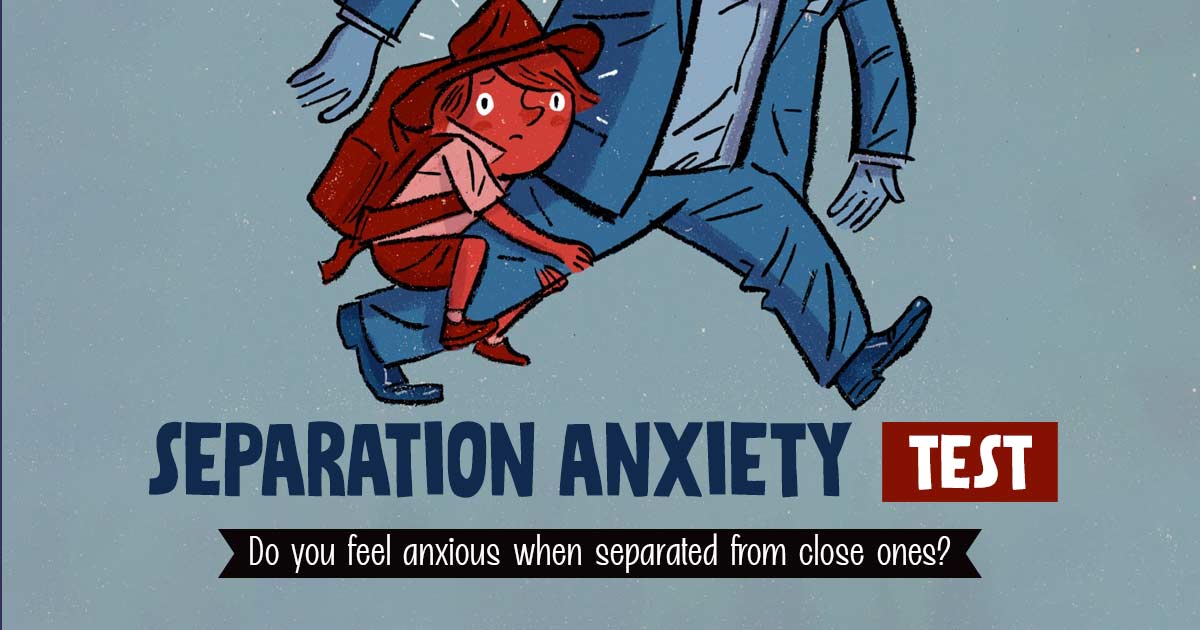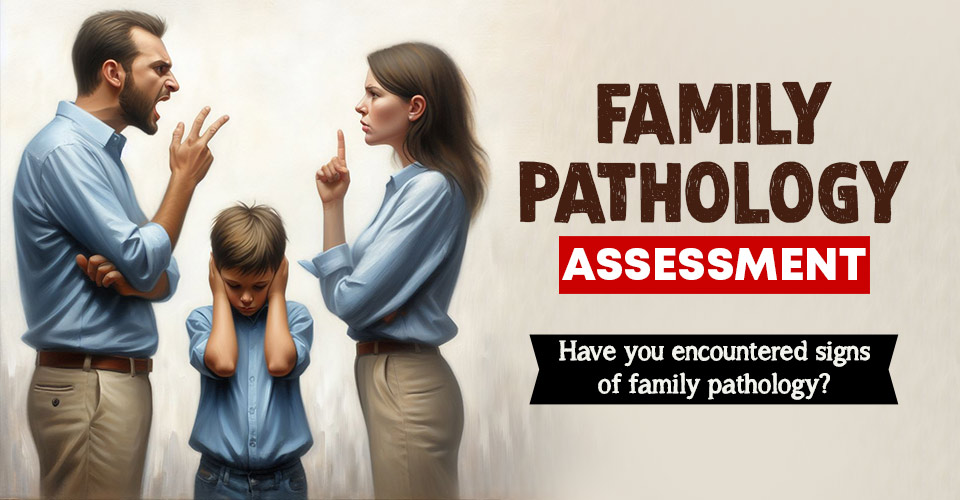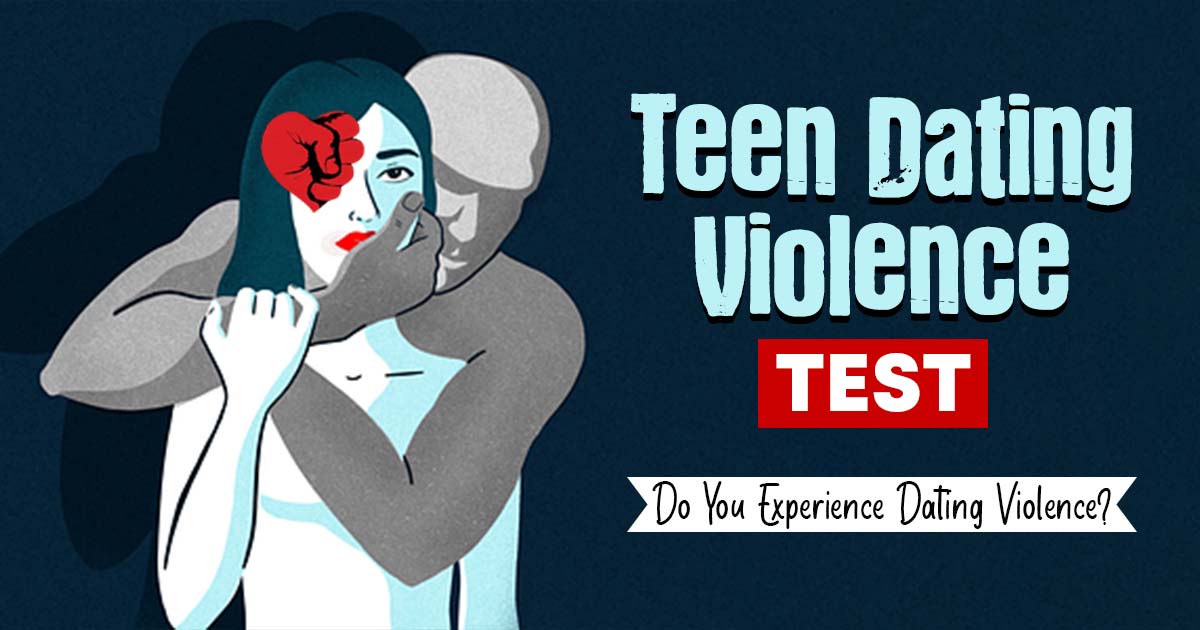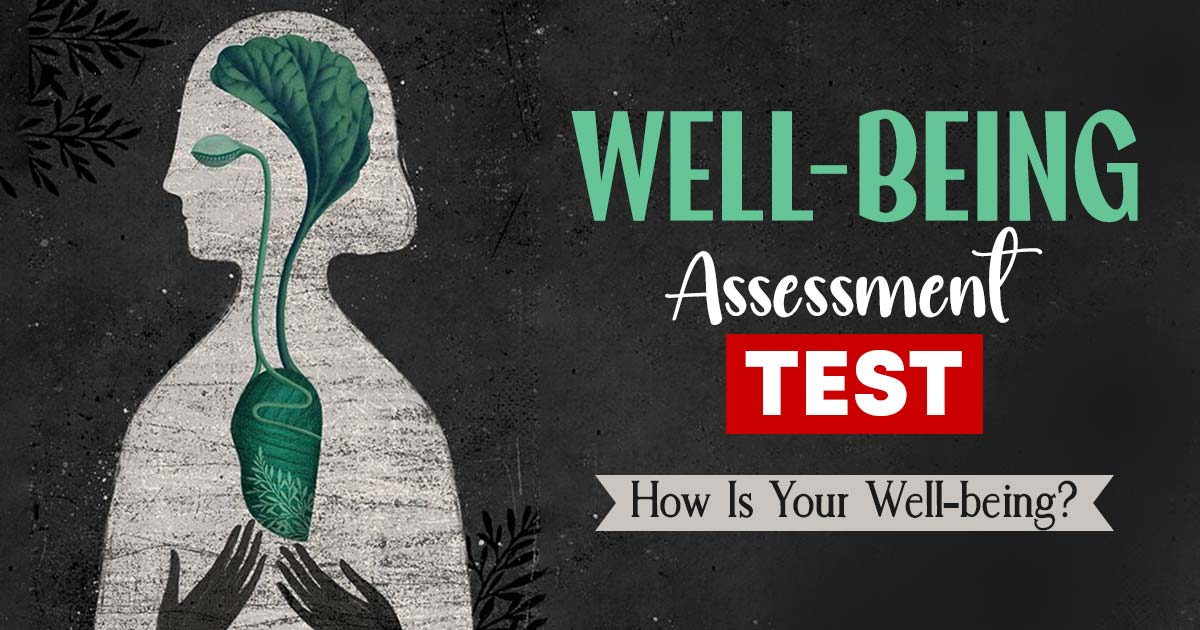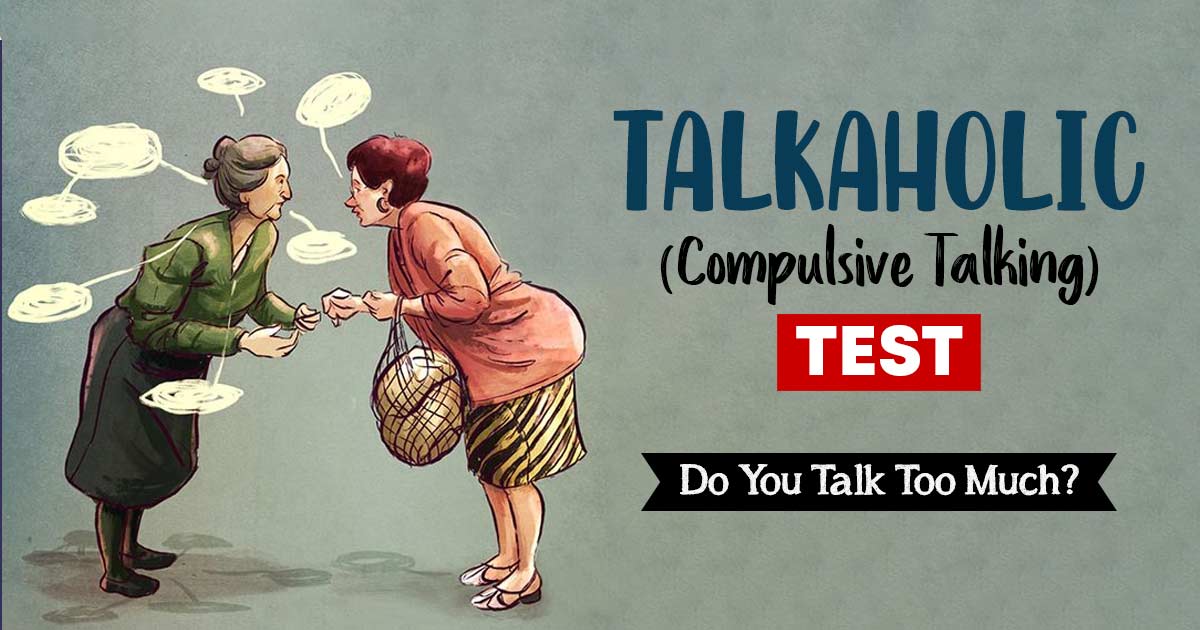Do you feel worried about being separated from someone close to you? Do you have trouble falling asleep or staying asleep alone at night? Do you hesitate to go alone somewhere without the presence of your close ones? Or, do you feel that you are overly dependent on your loved one? Take this Separation Anxiety Test to know whether or not you have signs of separation anxiety.
What Is Separation Anxiety?
Separation anxiety is a psychological condition that occurs when an individual experiences intense fear, worry, or distress, when separated from a person or place that provides them with a sense of security or comfort.
This condition is most commonly associated with children who experience separation anxiety when being separated from their parents or caregivers, but it can also occur among adults. Separation anxiety in adults can arise from various life events, including the loss of an attachment figure due to relocation or even due to a temporary separation.
Symptoms of separation anxiety can vary depending on the individual and the severity of the condition, but some of the common symptoms include:
- Excessive worry or distress when anticipating or experiencing a separation from an attachment figure or a place of security
- Physical symptoms such as shaking, nausea, or vomiting, especially during or before a separation
- Refusal to leave the house or go to work or school, or reluctance to be alone
- Difficulty sleeping, including nightmares or trouble falling asleep
- Excessive phone calls, texts, or messages to the attachment figure, even when it’s not necessary
Disclaimer: If these symptoms cause clinically significant distress or impairment in social, occupational, or other important areas of functioning, and last for at least 4 weeks or longer, it might be considered a disorder.
Instructions For Taking The Separation Anxiety Test
Below is a list of statements related to the common signs of separation anxiety. Please read each statement carefully and rate the extent to which these are relevant to you.
Please note: This separation anxiety test is a self-assessment and not a diagnostic test.
Assessment Summary
0 of 15 Questions completed
Questions:
Information
You have already completed the assessment before. Hence you can not start it again.
Assessment is loading…
You must sign in or sign up to start the assessment.
You must first complete the following:
Results
Results
Your time:
Time has elapsed
You have reached 0 of 0 point(s), (0)
Earned Point(s): 0 of 0, (0)
0 Essay(s) Pending (Possible Point(s): 0)
Categories
- Mental Health Assessment 0%
-
Low Sign Of Separation Anxiety
Your score indicates that you have a low sign of separation anxiety. It can be evident from your score that to a few extent, you might slightly feel worried when fear being separated from someone close to you and might also try to avoid a few situations that may cause separation from close people. Besides this, it can also be seen from your response that to a few extent, the fear or the actual separation from your loved one may lead to a few physical symptoms such as sweating, stomachaches, or nausea in rare cases. Along with this, your score reflects that you might find little difficulties to adjust in a situation or environment without your loved one.
Further, your score seems that in a few cases, you may feel hesitant going out somewhere without the presence of your close one and might be a little worried that the close person you are attached to might abandon or leave you one day. However, it should be noted that these signs would have a chance to impact your social, occupational, personal, and other areas of functioning in life.
Want to learn more?
Separation anxiety can be treated with psychotherapies such as Cognitive behavioral therapy which helps individuals learn new coping skills and challenge negative thoughts and beliefs that contribute to their anxiety and exposure therapy which involves gradually exposing the individual to separation-related situations to reduce the level of fear and anxiety.
Some other strategies can be used to manage an individual’s signs of separation anxiety, such as identifying the situations that trigger anxiety allowing one to prepare for the negative feelings that arise, engaging in activities or hobbies that provide a distraction and help shift focus away from the anxiety, talking to a trusted friend or family member about the anxiety or join a support group to connect with others who are going through similar experiences. If you want to know more about how to overcome your signs of separation anxiety, talk to our professional psychologists.
You can use our Mood Tracker to stay mindful of your mood every day, and identify your innermost thoughts & emotions on a daily basis. It will help you in doing the things you love while limiting activities that might dampen your mood.
-
Moderate Sign Of Separation Anxiety
Your score indicates that you have a moderate sign of separation anxiety. It can be evident from your score that sometimes you might feel worried when fear being separated from someone close to you and in some cases might also try to avoid situations that may cause separation from close people. Besides this, it can also be seen from your response that some extent, the fear or the actual separation from your loved one often might lead to physical symptoms such as sweating, stomachaches, shaking, or nausea. Along with this, your score reflects that you might find some difficulties to adjust in a situation or environment without your loved one.
Further, your score seems that in some cases, you may feel hesitant going out somewhere without the presence of your close one and often might feel worried that the close person you are attached to might abandon or leave you one day. However, it should be noted that these signs would have a chance to impact some of your social, occupational, personal, and other areas of functioning in life.
Want to learn more?
Separation anxiety can be treated with psychotherapies such as Cognitive behavioral therapy which helps individuals learn new coping skills and challenge negative thoughts and beliefs that contribute to their anxiety and exposure therapy which involves gradually exposing the individual to separation-related situations to reduce the level of fear and anxiety.
Some other strategies can be used to manage an individual’s signs of separation anxiety, such as identifying the situations that trigger anxiety allowing one to prepare for the negative feelings that arise, engaging in activities or hobbies that provide a distraction and help shift focus away from the anxiety, talking to a trusted friend or family member about the anxiety or join a support group to connect with others who are going through similar experiences. If you want to know more about how to overcome your signs of separation anxiety, talk to our professional psychologists.
You can use our Mood Tracker to stay mindful of your mood every day, and identify your innermost thoughts & emotions on a daily basis. It will help you in doing the things you love while limiting activities that might dampen your mood.
-
High Sign Of Separation Anxiety
Your score indicates that you have a high sign of separation anxiety. It can be evident from your score that in most cases you seem to feel strongly worried when fear being separated from someone close to you and also seem to try to avoid most of the situations that may cause separation from close people. Besides this, it can also be seen from your response that to many extent, the fear or the actual separation from your loved one may strongly leads you to physical symptoms such as sweating, stomachaches, shaking, or nausea. Along with this, your score reflects that you seem to find strong difficulties to adjust in a situation or environment without your loved one.
Further, your score seems that in most cases, you seem to feel strongly hesitant going out somewhere without the presence of your close one and most frequently seem to feel worried that the close person you are attached to might abandon or leave you one day. However, it should be noted that these signs would have a chance to strongly impact your social, occupational, personal, and other areas of functioning in life.
Want to learn more?
Separation anxiety can be treated with psychotherapies such as Cognitive behavioral therapy which helps individuals learn new coping skills and challenge negative thoughts and beliefs that contribute to their anxiety and exposure therapy which involves gradually exposing the individual to separation-related situations to reduce the level of fear and anxiety.
Some other strategies can be used to manage an individual’s signs of separation anxiety, such as identifying the situations that trigger anxiety allowing one to prepare for the negative feelings that arise, engaging in activities or hobbies that provide a distraction and help shift focus away from the anxiety, talking to a trusted friend or family member about the anxiety or join a support group to connect with others who are going through similar experiences. If you want to know more about how to overcome your signs of separation anxiety, talk to our professional psychologists.
You can use our Mood Tracker to stay mindful of your mood every day, and identify your innermost thoughts & emotions on a daily basis. It will help you in doing the things you love while limiting activities that might dampen your mood.
- 1
- 2
- 3
- 4
- 5
- 6
- 7
- 8
- 9
- 10
- 11
- 12
- 13
- 14
- 15
- Current
- Review
- Answered
- Correct
- Incorrect
-
Question 1 of 15
1. Question
I feel worried when fear being separated from someone close to me.
-
Question 2 of 15
2. Question
I avoid situations that may lead to separation from people close to me.
-
Question 3 of 15
3. Question
I have trouble falling asleep or staying asleep alone at night.
-
Question 4 of 15
4. Question
I experience symptoms like sweating, stomachaches, or nausea when fear about or get separated from someone close.
-
Question 5 of 15
5. Question
I feel more secure at home when I am with people who are close to me.
-
Question 6 of 15
6. Question
I need to be in constant contact (calling or messaging) with my loved one when we are separated.
-
Question 7 of 15
7. Question
I experience repeated nightmares of losing someone close to me.
-
Question 8 of 15
8. Question
I fear going alone somewhere without the presence of my close people
-
Question 9 of 15
9. Question
I have trouble adjusting to a new situation or environment without my close one.
-
Question 10 of 15
10. Question
I become upset and sad when thinking about being away from people who are close to me.
-
Question 11 of 15
11. Question
I worry that something bad will happen to my loved one during or after the separation.
-
Question 12 of 15
12. Question
I worry that the person I’m attached to would abandon me or leave me alone one day.
-
Question 13 of 15
13. Question
I refuse to engage in social events without the presence of my close ones and love to spend more time with my close ones.
-
Question 14 of 15
14. Question
I feel like I am overly dependent on my closed one.
-
Question 15 of 15
15. Question
Fear of separation from my close people interferes badly with my daily activity.

